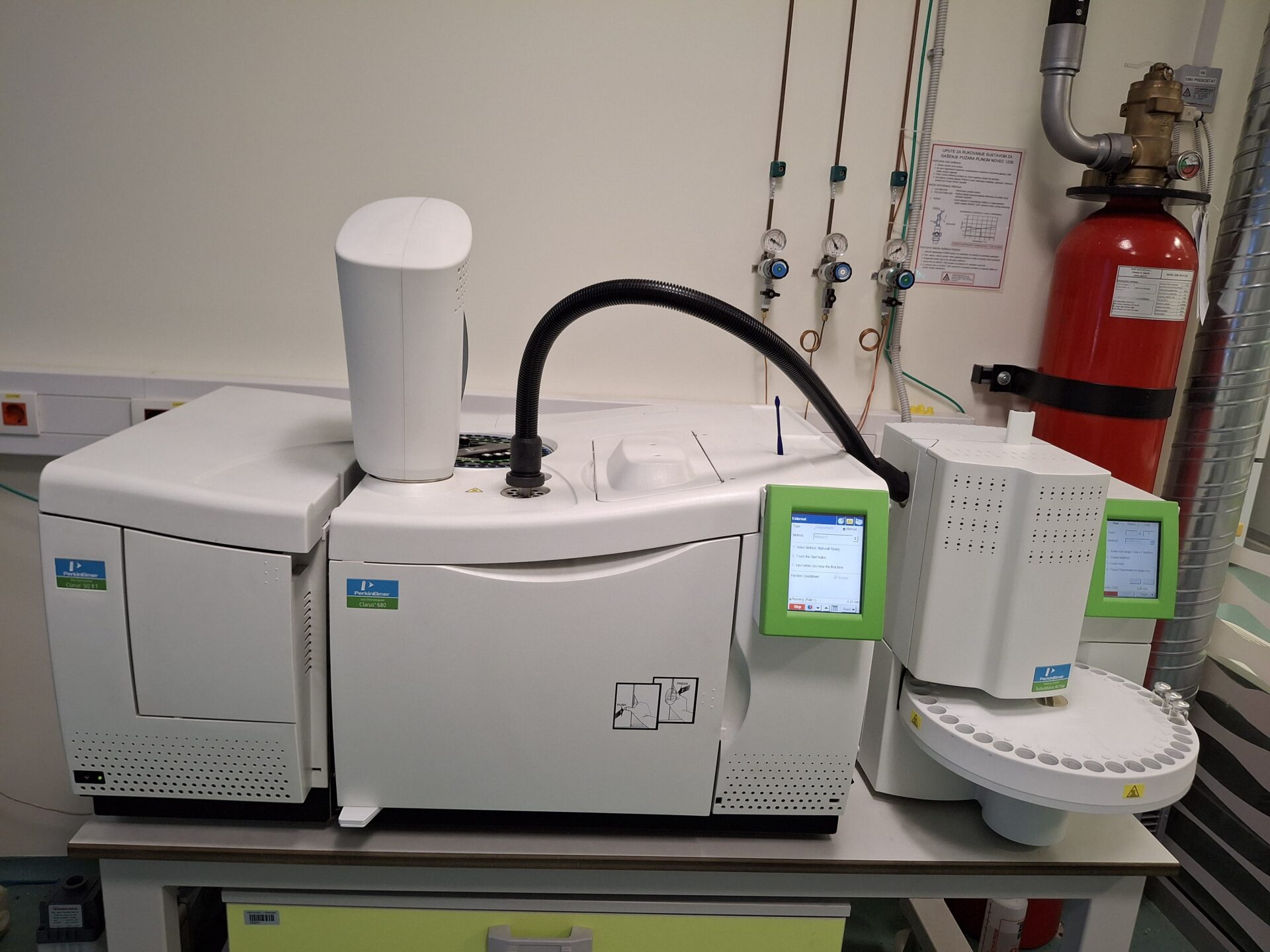Volatile organic compounds in water


Volatile organic compounds are a common term for organic compounds that have physical properties with high vapour pressure, so that they exist in a gaseous state under normal temperature and pressure conditions.
The Josip Juraj Strossmayer Water Institute carries out monitoring of surface waters, and the list of priority and other pollutants includes compounds belonging to the group of volatile organic compounds, the sources of which are industrial processes, vehicle emissions, vapours evaporating during fuel storage, forest fires and other sources. The determination of volatile organic compounds in surface and groundwater is carried out using mass spectrometry in combination with gas chromatography, with a “headspace” autosampler model that enables the analysis of volatile components.
One of the groups of compounds analysed in the laboratory is the group of so-called BTEX compounds, which includes benzene, toluene, ethylbenzene and xylenes. Benzene is produced during the combustion of fuels such as petroleum and wood and is sometimes added to the fuel instead of lead. Higher concentrations of toluene, ethylbenzene and xylenes can be found near factories where adhesives, solvents and paints are manufactured. Xylene is often used in the manufacture of plastic bottles and polyester clothing. A group of volatile compounds known as trihalomethanes, which include chloroform, are produced as a by-product of water disinfection. Various chlorinated solvents are also determined in the laboratory, such as tetrachloroethene, which is widely used as a solvent for dry cleaning and for degreasing metal parts. Trichloroethene is also used as a cooling agent and is one of the most commonly used substances for dry cleaning, degreasing and extraction. Dichloromethane is also used as an extraction agent.
All volatile organic compounds are toxic and can enter the body through the lungs, skin and digestive system. Most data on acute health effects have been collected for benzene due to its haematotoxicity and for toluene due to its neurotoxicity, while only few data are available for some other compounds. All organic solvents have different effects on the body after ingestion, such as headaches, dizziness, drowsiness or even unconsciousness. The positive aspect is that in the presence of oxygen, BTEX compounds are very quickly degraded in water and soil by the action of bacteria, which is why they do not remain in surface waters for long.
Long-term studies of surface water quality in the Republic of Croatia and current data from the Josip Juraj Strossmayer Water Institute show that volatile organic compounds are rarely detected and do not significantly affect the quality of our watercourses.

